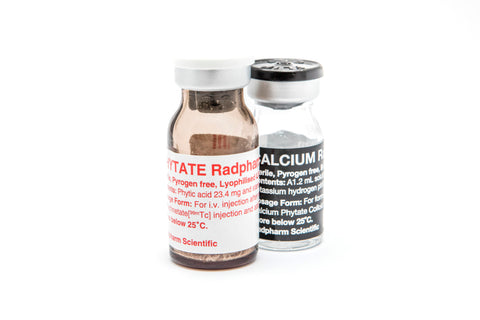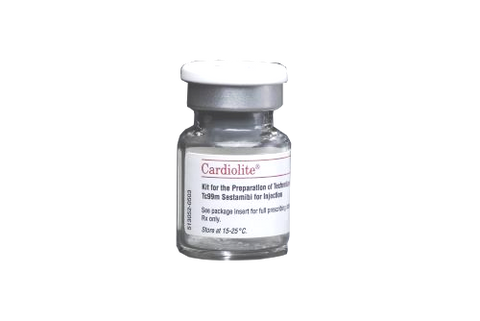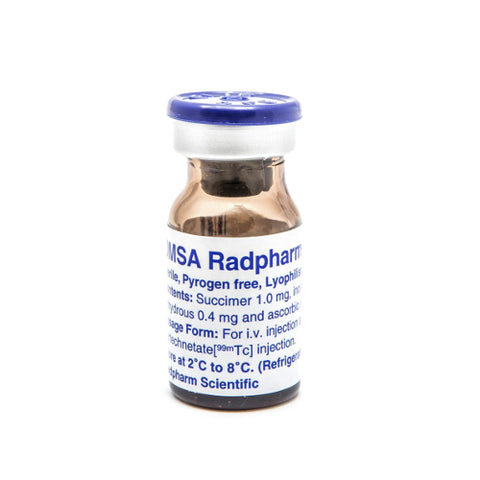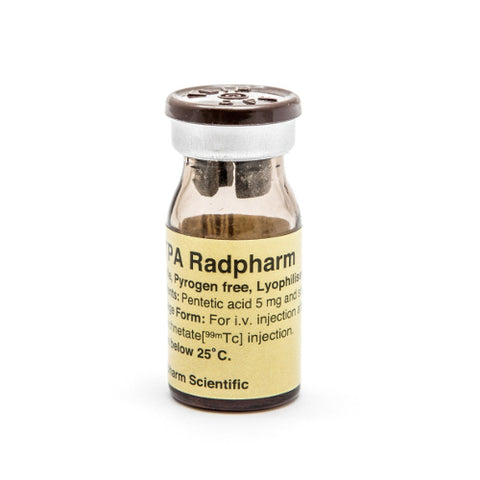Cardiolite
Cardiolite® is a technetium-labeled single photon emission computed tomography (SPECT) myocardial perfusion imaging (MPI) agent used for identifying and managing patients with known or suspected coronary artery disease (CAD) and has been used to image more than 53 million patients since 1991.1,2
Cardiolite® was the first technetium-labeled myocardial perfusion imaging tracer to provide physicians with prognostic information helpful in making patient management decisions related to CAD.1
Myocardial Imaging: Cardiolite® (Kit for the Preparation of Technetium Tc99m Sestamibi for Injection), is a myocardial perfusion agent that is indicated for detecting coronary artery disease by localizing myocardial ischemia (reversible defects) and infarction (non-reversible defects), in evaluating myocardial function and developing information for use in patient management decisions. Cardiolite® evaluation of myocardial ischemia can be accomplished with rest and cardiovascular stress techniques (e.g. exercise or pharmacologic stress in accordance with the pharmacologic stress agent’s labeling).
None known.
Cardiolite® has been rarely associated with acute severe allergic and anaphylactic events of angioedema and generalized urticaria. In some patients the allergic symptoms developed on the second injection during Cardiolite®imaging. The most frequently reported adverse events include headache, chest pain/angina, ST segment changes on ECG, nausea, and abnormal taste and smell.
Infrequently, death has occurred 4 to 24 hours after Tc99m Sestamibi use and is usually associated with exercise stress testing (See Section 5.2). Pharmacologic induction of cardiovascular stress may be associated with serious adverse events such as myocardial infarction, arrhythmia, hypotension, bronchoconstriction and cerebrovascular events.
In studying patients in whom cardiac disease is known or suspected, care should be taken to assure continuous monitoring and treatment in accordance with safe, accepted clinical procedure.
Caution should be exercised and emergency equipment should be available when administering Cardiolite®.
Before administering Cardiolite® patients should be asked about the possibility of allergic reactions to either Cardiolite® or Miraluma®. Miraluma® is an identical compound used in breast imaging.
The contents of the vial are intended only for use in the preparation of Technetium Tc99m Sestamibi and are not to be administered directly to the patient without first undergoing the preparative procedure.
Please see full prescribing information.
DESCRIPTION Kit for the Preparation of Technetium[99mTc] Calcium Phytate ColloidInjection for Liver/Spleen Imaging. The agent comprises sterile, pyrogen free lyophilised ingredients whichneed reconstitution with sodium... View full product details
Cardiolite® is a technetium-labeled single photon emission computed tomography (SPECT) myocardial perfusion imaging (MPI) agent used for identifying and managing patients with known or suspected... View full product details
Radpharm DMSA consists of sterile, pyrogen free lyophilised ingredients which need reconstitution with sodium pertechnetate[99mTc] injection to produce a technetium[99mTc] succimer complex suitable for renal imaging.The... View full product details
Radpharm DTPA consists or sterile. pyrogen free,Jtapnmsed ingredients which need reconstitution with SOdium Pertecnnetate t"Tc) lfltCClion to produce a tectinetlum [IIIITl-rc) pentetate complex suital>te for renal imaging.... View full product details
Sign up to get the latest on sales, new releases and more …
© 2025 GMS Australia Pty Ltd.
PRODUCTS NOT AVAILABLE FOR PURCHASE BY THE GENERAL PUBLIC .ALWAYS READ THE LABEL AND FOLLOW THE DIRECTIONS FOR USE
Powered by Shopify




